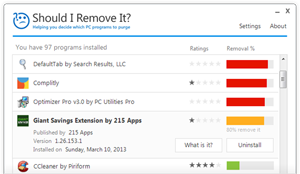Import table
api-ms-win-core-errorhandling-l1-1-0.dll
UnhandledExceptionFilter, GetLastError, SetUnhandledExceptionFilter
api-ms-win-core-file-l1-1-0.dll
FindFirstVolumeW, FindNextVolumeW, FindVolumeClose, GetDriveTypeW, CreateFileW, GetVolumeInformationW, GetVolumePathNameW
api-ms-win-core-handle-l1-1-0.dll
CloseHandle
api-ms-win-core-heap-l1-1-0.dll
HeapDestroy
api-ms-win-core-interlocked-l1-1-0.dll
InterlockedIncrement, InterlockedCompareExchange, InitializeSListHead, InterlockedExchange, InterlockedDecrement, InterlockedPopEntrySList, InterlockedPushEntrySList
api-ms-win-core-io-l1-1-0.dll
DeviceIoControl
api-ms-win-core-libraryloader-l1-1-0.dll
GetProcAddress, GetModuleFileNameW, FreeLibrary, SizeofResource, LoadResource, LoadLibraryExW, LoadStringW, LoadLibraryExA, GetModuleHandleW
api-ms-win-core-localregistry-l1-1-0.dll
RegEnumValueW, RegQueryInfoKeyW, RegSetValueExW, RegDeleteValueW, RegOpenKeyExW, RegCreateKeyExW, RegCloseKey, RegEnumKeyExW
api-ms-win-core-memory-l1-1-0.dll
VirtualProtect, VirtualAlloc, VirtualQuery
api-ms-win-core-misc-l1-1-0.dll
Sleep, lstrlenW, lstrcmpiW, LocalFree, lstrlenA, lstrcpynW
api-ms-win-core-processthreads-l1-1-0.dll
OpenThreadToken, CreateThread, GetCurrentThreadId, TerminateProcess, GetCurrentProcess, GetCurrentProcessId, OpenProcessToken
api-ms-win-core-profile-l1-1-0.dll
QueryPerformanceCounter
api-ms-win-core-string-l1-1-0.dll
MultiByteToWideChar
api-ms-win-core-synch-l1-1-0.dll
SetEvent, CancelWaitableTimer, SetWaitableTimer, InitializeCriticalSectionAndSpinCount, CreateEventW, DeleteCriticalSection, InitializeCriticalSection, WaitForSingleObject, ResetEvent, EnterCriticalSection, LeaveCriticalSection
api-ms-win-core-sysinfo-l1-1-0.dll
GetSystemTimeAsFileTime, GetTickCount, GetSystemDirectoryW, GetSystemInfo, GetVersionExW
api-ms-win-security-base-l1-1-0.dll
AdjustTokenPrivileges, DuplicateTokenEx, GetTokenInformation, InitializeSecurityDescriptor, CreateWellKnownSid, SetSecurityDescriptorOwner, SetSecurityDescriptorGroup, SetSecurityDescriptorDacl, CheckTokenMembership
api-ms-win-service-core-l1-1-0.dll
RegisterServiceCtrlHandlerExW, SetServiceStatus
api-ms-win-service-management-l1-1-0.dll
OpenServiceW, DeleteService, OpenSCManagerW, CreateServiceW, CloseServiceHandle
api-ms-win-service-management-l2-1-0.dll
ChangeServiceConfig2W
kernel32.dll
GetDiskFreeSpaceW, GetLocalTime, GetFileInformationByHandle, ReadFile, RegDeleteTreeW, MoveFileExW, GetFileAttributesW, DeleteFileW, CreateDirectoryW, ExpandEnvironmentStringsW, SetLastError, FindClose, FindNextFileW, FindFirstFileW, GetCurrentThread, TlsAlloc, TlsGetValue, RegQueryValueExW, TlsSetValue, TlsFree, FormatMessageW, DelayLoadFailureHook, GetVolumeNameForVolumeMountPointW, FindResourceW, GetVolumePathNamesForVolumeNameW, WaitForMultipleObjects, SleepConditionVariableCS, PowerClearRequest, WakeAllConditionVariable, InitializeConditionVariable, PowerSetRequest, PowerCreateRequest, lstrcpyW, LoadLibraryW, lstrcatW, CreateWaitableTimerW
msvcrt.dll
DllMain
ntdll.dll
RtlInsertElementGenericTableAvl, RtlDeleteElementGenericTableAvl, RtlEnumerateGenericTableAvl, RtlInitializeGenericTableAvl, RtlInitializeBitMap, RtlSetBits, NtWaitForSingleObject, NtFsControlFile, RtlFindSetBits, RtlFindClearBits, RtlFindClearRuns, RtlClearBits, RtlFindNextForwardRunClear, NtSetInformationThread, NtQueryInformationFile, NtOpenFile, NtQueryDirectoryFile, RtlInitUnicodeString, NtSetInformationProcess, RtlGetLastNtStatus, RtlNtStatusToDosError, EtwTraceMessage, RtlFreeHeap, RtlSetThreadErrorMode, RtlCaptureStackBackTrace, RtlAllocateHeap, EtwGetTraceEnableFlags, EtwGetTraceEnableLevel, EtwGetTraceLoggerHandle, EtwRegisterTraceGuidsW, EtwUnregisterTraceGuids, WinSqmSetDWORD
sxshared.dll
SxTracerShouldTrackFailure, SxTracerDebuggerBreak, SxTracerGetThreadContextRetail
user32.dll
RegisterDeviceNotificationW, UnregisterDeviceNotification, CharPrevW, CharNextW
Export table
DllCanUnloadNow
DllGetClassObject
DllRegisterServer
DllUnregisterServer
ServiceMain

